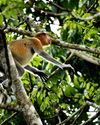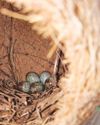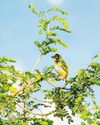
During the summer and spring seasons in the dry tropical forests of India, a particular tree blooms. Its flowers, fruits and leaves fill the forest with an irresistible scent that lures humans and animals alike. Sloth bears, elephants, deer, fruit bats and langurs feast on its fruits and flowers.
With its alcoholic properties, the leaves and flowers of the tree have also been known to intoxicate sloth bears and elephants! For humans, on the other hand, uses of this tree are numerous - it acts as a source of sustenance for them and their cattle, its bark is said to have medicinal properties, oil from the tree can be used as fertilizer, and its flowers are fermented to create an alcoholic beverage.
Due to its varied uses, many indigenous tribes believe the tree to be a divine entity; its mention can be found in Sanskrit texts dating as early as the 2nd Century B.C. Such is the allure of the Mahua or Madhuca longifolia India's most intoxicating and sacred tree. However, today, Mahua's popularity amongst humans and animals alike, specifically in its role as an intoxicant, has made it a significant factor in human-wildlife conflict in various regions.
WHAT IS MAHUA?
Madhuca longifolia is native to India, Sri Lanka, Nepal and Myanmar. In India, it is known by names differing by regions such as mahwa, mohwa, mohwra, Ilupai, honey tree, and butter tree, but its most common moniker is Mahua. This tree is widespread across the states of West Bengal, Odisha, Chhattisgarh, Jharkhand, Uttar Pradesh, Bihar, Gujarat, Maharashtra, Madhya Pradesh, Telangana, Kerala, and Tamil Nadu.
They stand tall in crop fields, river banks and dense meadows. Mahua is a medium-sized tree that grows up to 16-20 m, with its grey trunk 80 cm in diameter. When the tree blooms between March and April, its flowers are green or pink.
This story is from the SAEVUS JUNE-AUGUST 2023 edition of Saevus.
Start your 7-day Magzter GOLD free trial to access thousands of curated premium stories, and 9,000+ magazines and newspapers.
Already a subscriber ? Sign In
This story is from the SAEVUS JUNE-AUGUST 2023 edition of Saevus.
Start your 7-day Magzter GOLD free trial to access thousands of curated premium stories, and 9,000+ magazines and newspapers.
Already a subscriber? Sign In

Staying ALIVE!
The importance of getting to the root causes of conflict with wildlife, is essential. Its mitigation will guarantee the very survival of all species.

Frames from the WILD
A few amazing shots from a horde of incredible ones!

WAKE UP!
A frightening thought a world without wildlife, mornings without birdsong, and all that we take for granted! We must realise the dangers threatening the beauteous green world and its inhabitants around us!

Dolphin DILEMMA!
A crucial article to highlight the significance, and plight of Our riverine friends.

Gecko Quest!
The authors take us on the trail of a gecko from West Bengal, through the hills of the Bankura district.

Endangered EXOTICA!
The author takes us on an exotic ride into the forests of Malaysia, allowing us glimpses of the beauties of its wildlife!

Mellifluous Magpie!
Immerse yourselves in the world of the musical and glorious Magpie Robin! The authors help acquaint us with this beautiful bird.

Think Different!
The author brings to us the very real concern for the horses employed around pilgrimage sites in India.

Take Heed!
The authors make a case for the conservation of the rare and lesser-known Sociable Lapwing.

Close Encounters!
The author introduces us to two amazing yet very different bird species, showing us the diversity of our ecosystems,